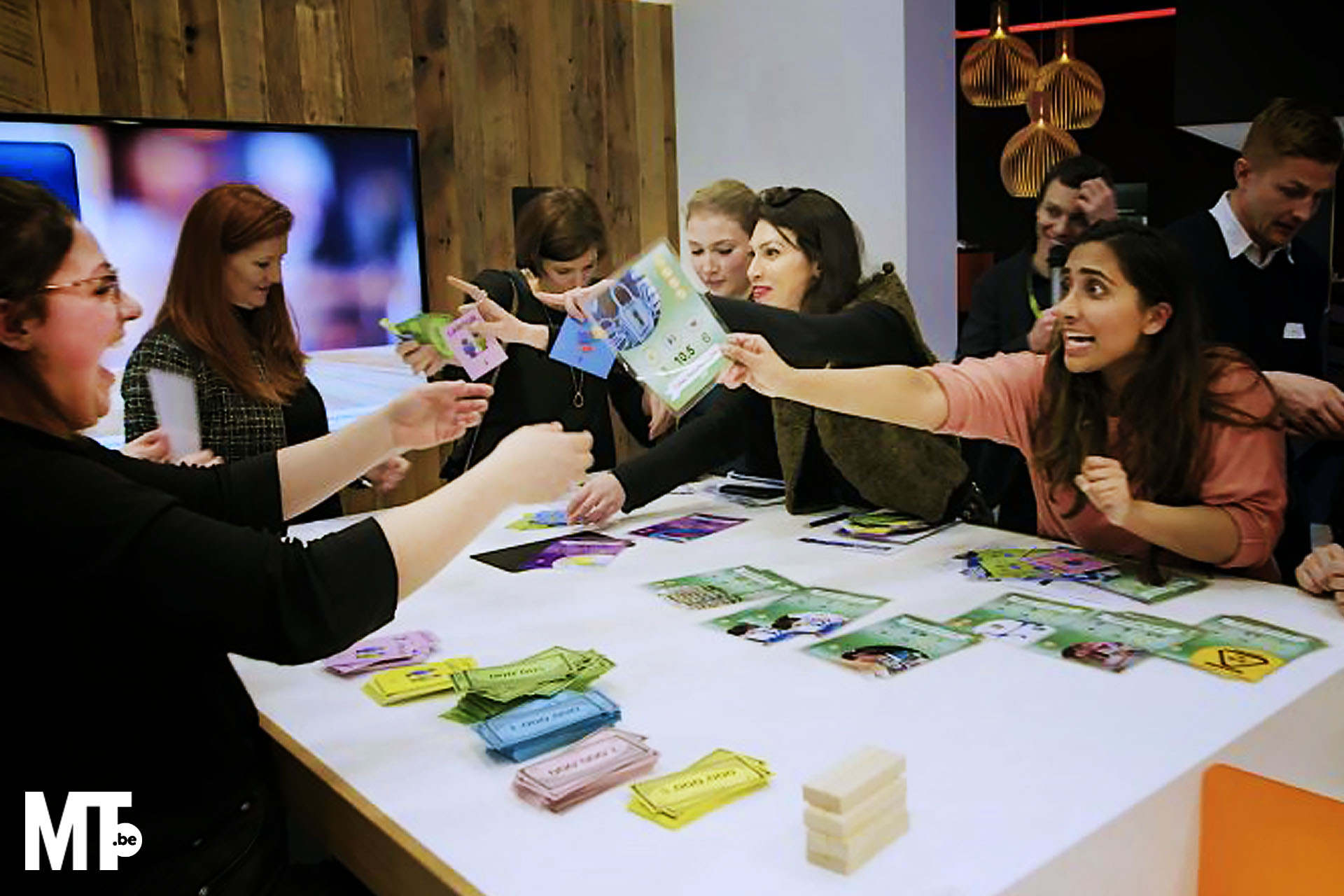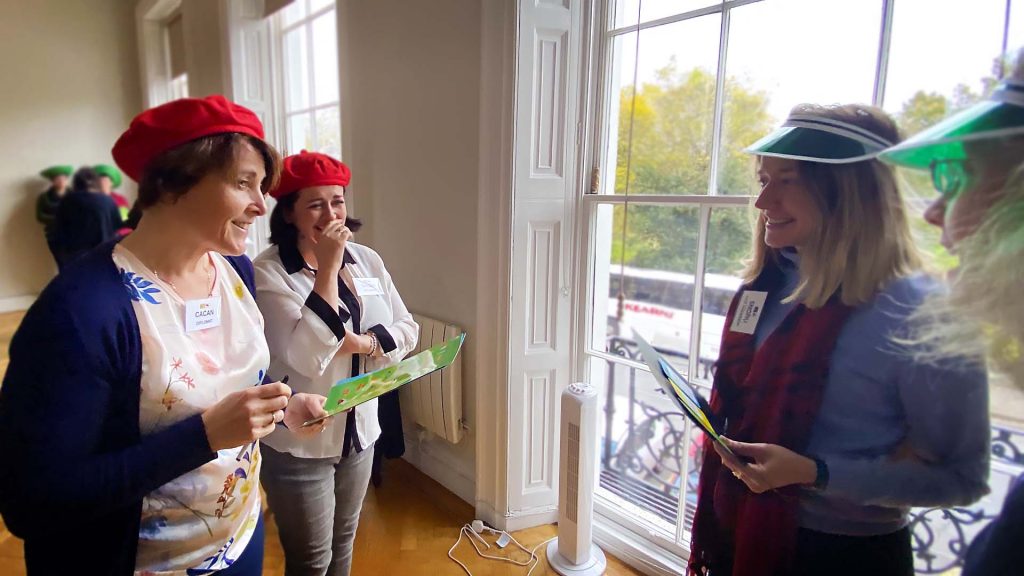New trend: working on togetherness with games

By Bjorn Cocquyt for MT.be (orig. Dutch)
Letting your employees experiment, learn and onboard risk-free in a safe environment…Business Games are the ideal tools for teams. Since the start of COVID-19, a new trend emerges: games to strengthen togetherness.
You learn things much better by doing them. This idea is as old as humankind itself, who learned how to make fire by imitating an older tribe member. Today, it is called ‘learning on the job’ or workplace learning if you are talking about the youth. But it hardly differs from the apprentice in the Middle Ages who started his apprenticeship at a tradesman to learn the correct skills.
Safe learning environment
But nothing escapes digitalisation. Not even the centuries old concept of learning through doing. Gijs van der Linden is the founder of Businessgames. With his company, he develops games for business purposes since 2002. ‘Experiential learning,’ another fancy word for learning through experience, is according to him, different from learning on the job. Experiential learning is a broader concept.
‘You can create a safe learning environment because the learning process whisks you away from the ‘real’ world to that of a game. The beautiful thing about a game is that you can learn safely. You will not be punished for making a mistake. It is a simulation, a safe space where you can experiment and freely learn from your mistakes. That is usually not possible in ‘real life’ situations, where you can lose customers or money. Although that largely depends on the corporate culture.’
Set people into motion
‘Gaming together in particular is an incredibly fun way to spur people into action,’ Gijs continues. ‘The competitive setting of a game also reveals the true character of the participants.’ All of this takes place in a context that on the one hand, requires professional skills, while on the other hand is far removed from his/her role at work. The latter is essential, because it might just happen that you are suddenly in charge of your manager during a Business Game.
The most popular games revolve around project management, working together and supply chain. But which type of game is suitable for your company logically depends on the set learning objectives. ‘In general, we facilitate games to unleash something in an organisation or team, or to make something comprehensible,’ according to Van der Linden. This can be a one-off training, of course with the intention that the participants will work on the new insights in the future. ‘But you can also use a game in the event of organisational change, and for example, play a game divided into several sessions over the course of a half-year period.

Reward good behaviour
Playing a Business Game with your team to learn together, gain new insights, strengthen the team spirit… Van der Linden does not count them as part of ‘gamification’. When you play a Business Game, you will enter a different world and you will agree upon a given period in which you play within this simulation.
Gamification, however, is introducing a game element into reality. ‘Nowadays it re-emerges everywhere: good behaviour is rewarded in a fun way. Of course, for this reason, game techniques work wonders. Rewarding certain behaviours is already well established in sales teams, even without a gaming element: when someone working in sales reach their target, they will get a bonus. This principle is now also being introduced in other teams.’
If rewarding behaviour in this manner proves successful or not, is largely dependent on your company culture. ‘Either way, it’s best to start in an accessible manner,’ Van der Linden advises. ‘For example, you can tell your sales teams that when they are able to secure five meetings out of thirty prospects, they are positioned at the top of the leader board on the intranet page. It will work in some organisations, but in others it can prove counterproductive.’